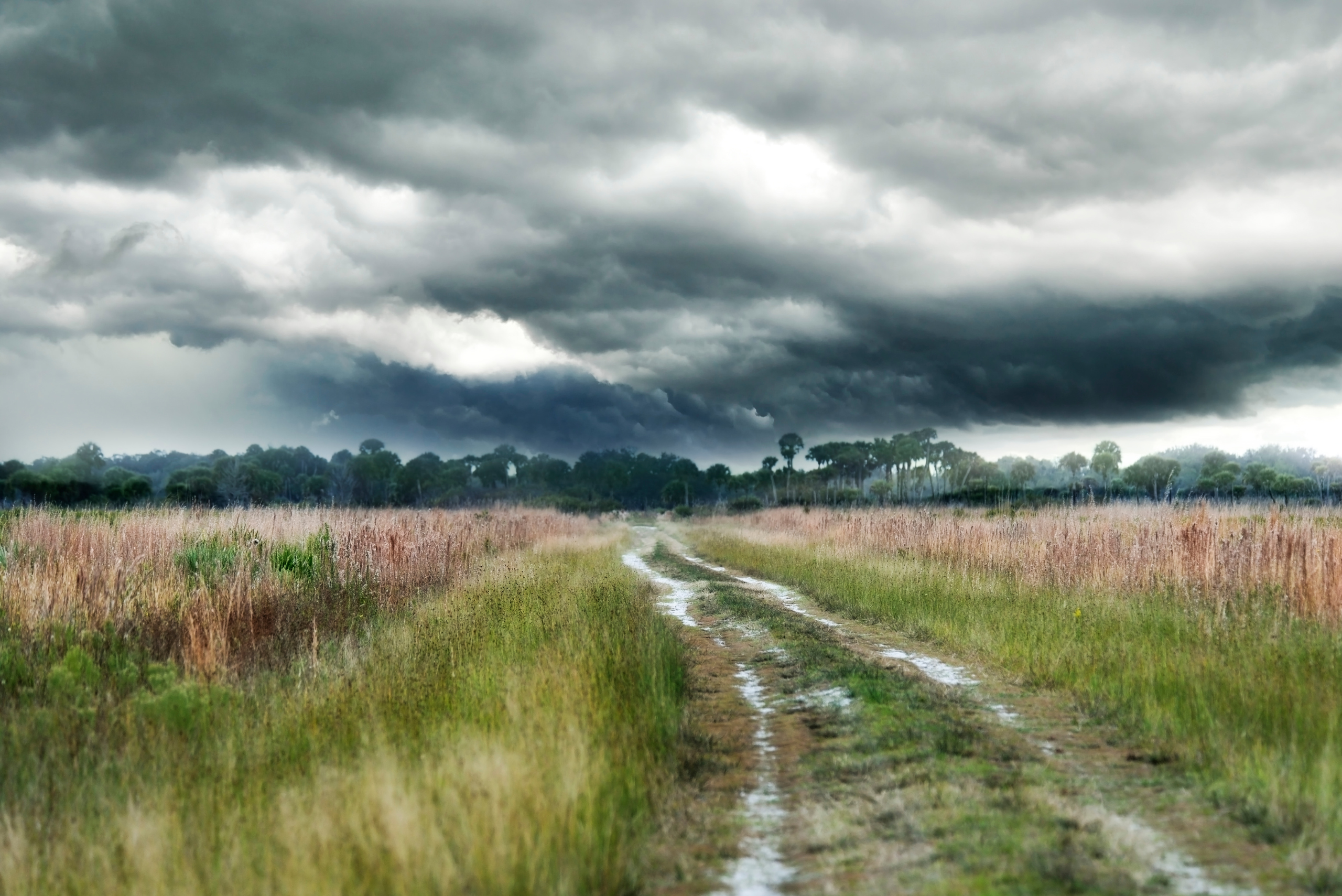C.S. Lewis was funny about weather. For Lewis, it seems, an ability to enjoy all sorts of weather—not just endure it, but enjoy it—suggested that you were the right sort of chap. In Surprised by Joy he wrote of a favorite schoolmaster,
He communicated (what I very much needed) a sense of the gusto with which life ought, wherever possible, to be taken. I fancy it was with a run with him in the sleet that I first discovered how bad weather is to be treated—as a rough joke, a romp.
To appreciate bad weather, to Lewis’s mind, was to be willing to live in, indeed, to rejoice in the fullness of reality. For his Oxford friend A.K. Hamilton Jenkin, unpleasant weather was part of the “atmosphere” that was always offering itself to those who will receive it.
Jenkin seemed to be able to enjoy everything; even ugliness. I learned from him that we should attempt a total surrender to whatever atmosphere was offering itself at the moment; in a squalid town to seek out those very places where its squalor rose to grimness and almost grandeur, on a dismal day to find the most dismal and dripping wood, on a windy day to seek the windiest ridge. There was no Betjemannic irony¹ about it; only a serious, yet gleeful, determination to rub one’s nose in the very quiddity of each thing, to rejoice in its being (so magnificently) what it was.
A shared love of Weather, in fact, might be a reason for two people to get married. I love this bit of dialogue from That Hideous Strength:
“That’s why Camilla and I got married,” said Denniston as they drove off. “We both like Weather. Not this or that kind of weather, but just Weather. It’s a useful taste if one lives in England.”
“How ever did you learn to do that, Mr. Denniston?” said Jane. “I don’t think I should ever learn to like rain and snow.”
“It’s the other way round,” said Denniston. “Everyone begins as a child by liking Weather. You learn the art of disliking it as you grow up. Haven’t you ever noticed it on a snowy day? The grown-ups are all going about with long faces, but look at the children—and the dogs? They know what snow’s made for.”
“I’m sure I hated wet days as a child,” said Jane.
“That’s because the grown-ups kept you in,” said Camilla. “Any child loves rain if it’s allowed to go out and paddle about in it.”
Those of you who have been complaining about this week’s arctic temperatures and blizzard conditions and double-digit-below-zero wind chills in much of the US might want to think on that.
In his essay, “On Stories,” Lewis mentions that, in spite of the fact that everybody else seems to love The Three Musketeers, he never could get into it. Why? Not enough weather, for one thing.
The total lack of atmosphere repels me. There is no country in the book—save as a storehouse of inns and ambushes. There is no weather. When they cross to London there is no feeling that London differs from Paris. There is not a moment’s rest from the ‘adventures’: one’s nose is kept ruthlessly to the grindstone. It all means nothing to me.
I got to thinking about Lewis and weather in my preparations for Writing with Puddleglum. The Silver Chair is one of the more “atmospheric” books you’ll ever read. The change from one atmosphere to another serves as an important organizational principle of the book—from Jill and Eustace’s school to Aslan’s mountaintop to the “thicker” air of Narnia. Within Narnia, the deepening cold as the protagonists travel north is vital to the plot (and the characters’ choices); the climax of the story is the “breaking” of a dark and deceptive atmosphere. In the Puddleglum class we’ll talk about how exactly Lewis creates and manages all that atmosphere (and weather!).








